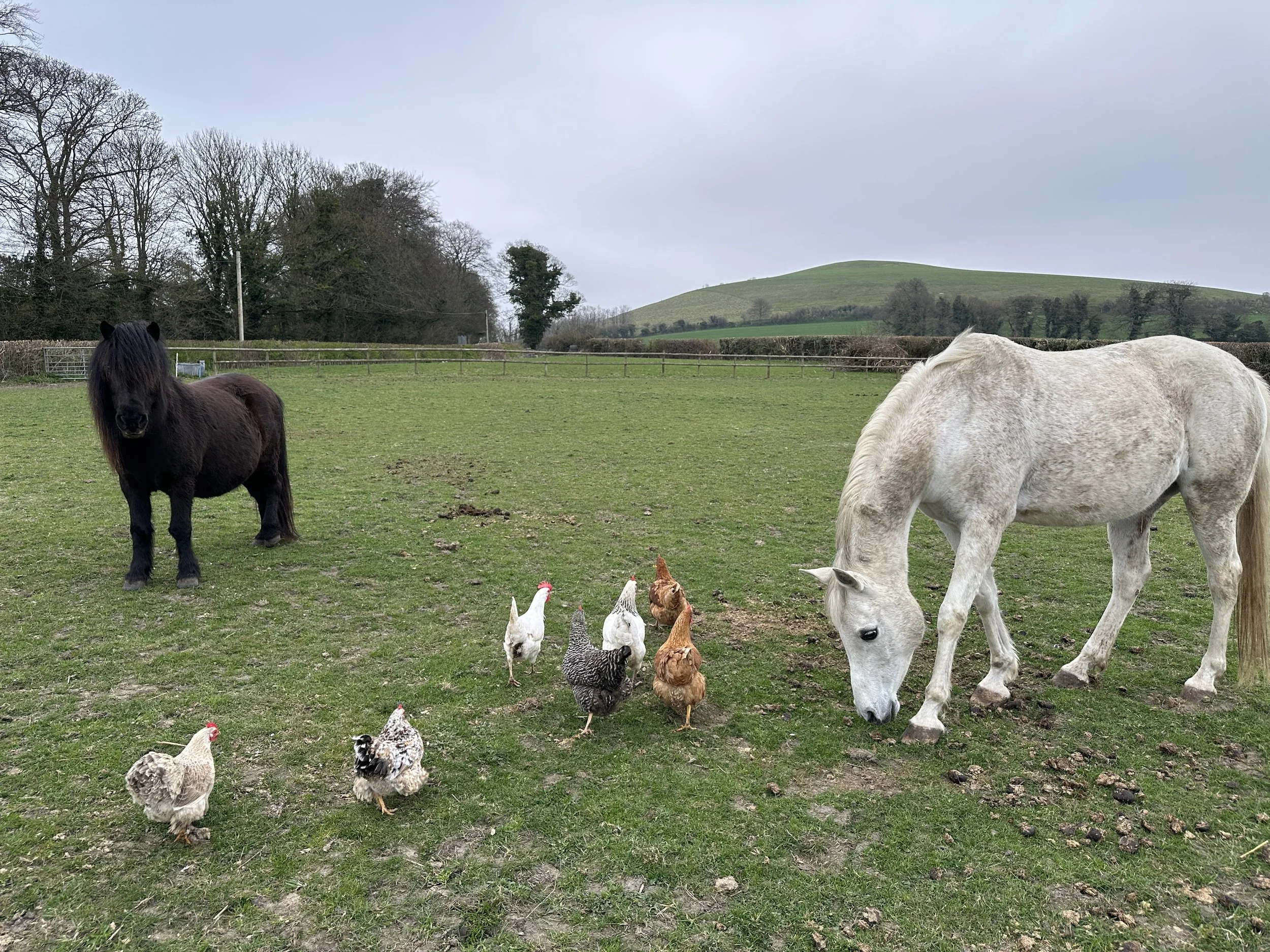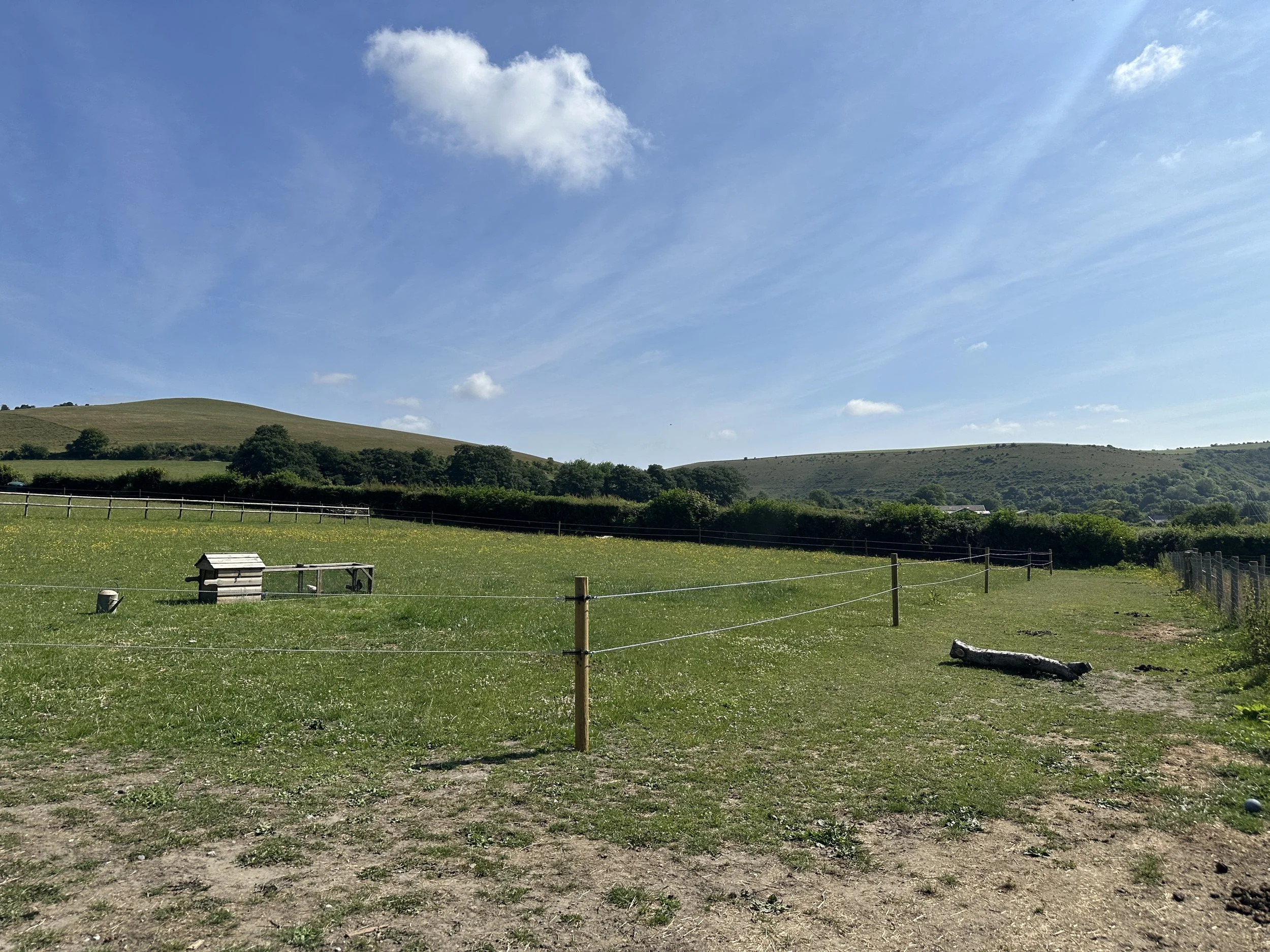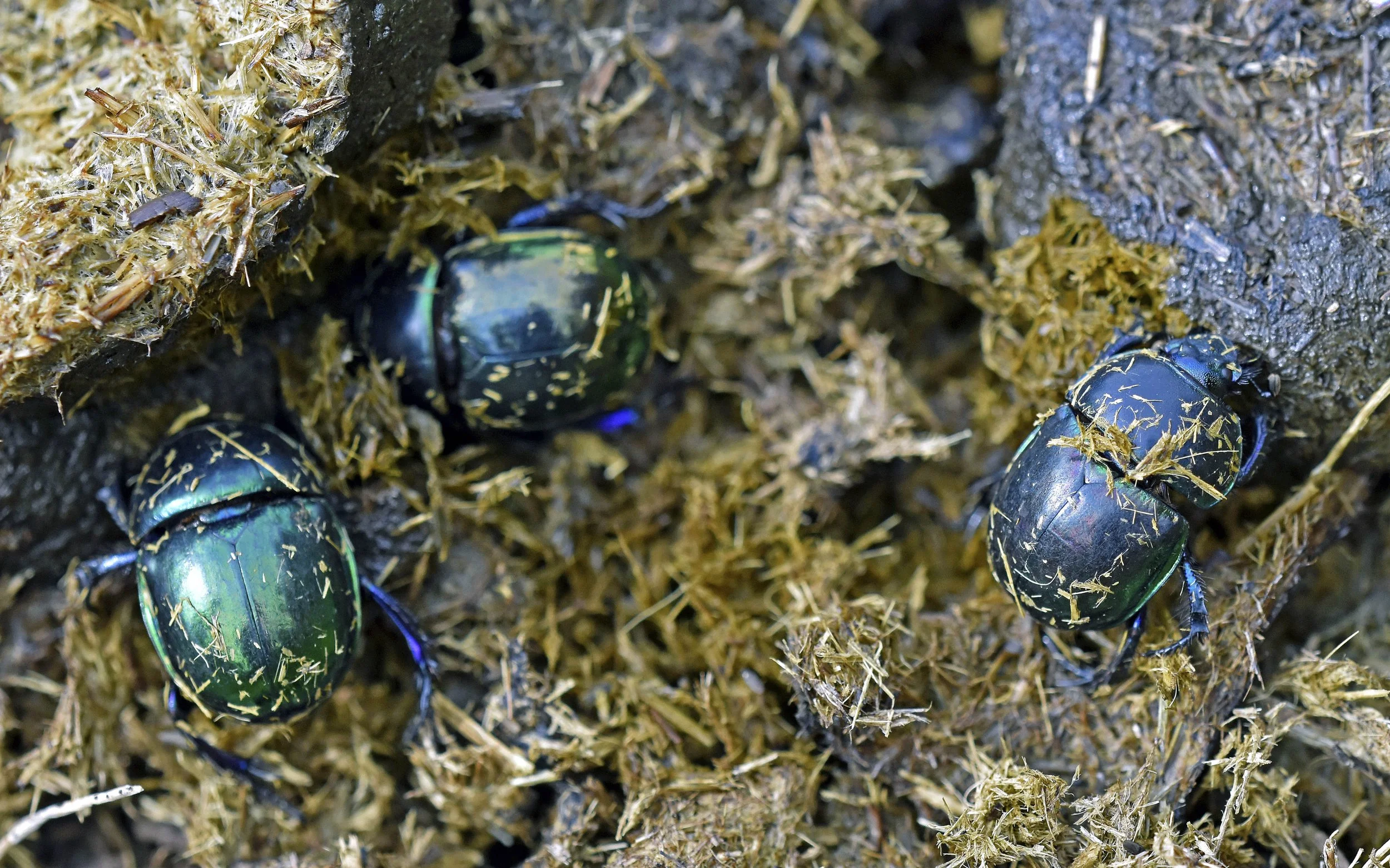Soil Health & Sustainable Horse Keeping
We’re passionate about soil health, wildlife, flora, and fauna here at The Old Forge. That’s why we’re working hard to restore our ‘horse-sick’ pastures and encourage rich biodiversity — all in a way that’s organic, sustainable, and kind to the land and animals.
🌿 The Problem with Traditional Grazing
Horses, as beautiful as they are, can be tough on the land. Overgrazing and compacted soil are common problems, especially in small pastures. But did you know short grass is actually a stress signal from the land? It's packed with high sugars that can be harmful — even dangerous — for horses. Conditions like laminitis and Equine Metabolic Syndrome (EMS) are linked to this kind of grazing.
In the wild, horses would constantly move and never overgraze one area. Their natural diet is high in fibre and low in sugar — the kind you get from long grasses. So, we’ve taken a more natural approach.
🐎 Introducing a Track System
To mimic that natural movement and give our land a rest, we’ve created a track system — a pathway that runs around the perimeter of our pasture. The horses follow this track to access hay stations, water, shelter, and shade — all placed apart to encourage movement. This design promotes exercise, prevents boredom, and keeps the soil in the central pasture protected.
Our horses also have access to an open shelter, and they come and go as they please. They’re never confined, which gives them choice and freedom — just as nature intended.
🪲 Let’s Talk About Dung Beetles!
One of the things we’re especially proud of is not poo-picking the fields (or waiting for 3 days before removing)— and here’s why. Dung beetles are one of nature’s most amazing (and underappreciated!) helpers. They tunnel, feed, and lay eggs in fresh manure, helping to break it down, fertilise the soil, and aerate the ground.
These tiny creatures even help control parasites and reduce flies. But sadly, they’re incredibly vulnerable to routine horse wormers, which are toxic to them.
That’s why we don’t worm our horses unless necessary. Instead, we send manure samples for Faecal Egg Count (FEC) tests every 12 weeks. This way, we only treat when needed — protecting both the beetles and the broader ecosystem. If treatment is required, we follow best practices like stable rest and proper manure disposal to avoid environmental impact.
♻️ Creating ‘Black Gold’
All our horse manure is 100% organic and composted right here at The Old Forge. We mix it with grass cuttings and compostable waste, aerate it regularly, and cover it to keep in the heat — creating rich, healthy compost (affectionately known as black gold!) to put back onto the land.
We hope you’ve enjoyed learning a little about our organic land management and horse care. We’re only at the beginning of this journey, but we’re excited to watch the pastures flourish, wildlife return, and the soil come back to life.
If you’re ever visiting, we’d love to show you around — or answer any questions about what we’re doing and why it matters.



